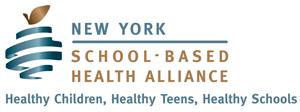The ongoing COVID-19 pandemic has posed tremendous challenges for economies and individuals around the world. At the same time, it has also laid bare the blatant and growing inequities that many individuals, particularly children, are confronted with on a daily basis. With communities in lockdowns and schools going virtual in many parts of the United States, the important role that schools and school-based services play in the lives of many children have gained new attention. Nonetheless, only 3% of American schools have school-based health centers on campus, and they remain relegated to the fringes of both health care and education. One key limitation has been the lack of appropriately trained health-care professionals. Over the past 2 years, we have interviewed dozens of individuals about their experiences in school-based health centers.
Based on this study, we explore what it means for a health-care professional to work in school-based health care and how it differs from more traditional health-care settings. Our analysis particularly focuses on training and education, work environments, and their unique demands that come from being embedded within the educational setting. We conclude by addressing the important role that governmental policies could play in augmenting this crucial workforce.
14 March 2022
